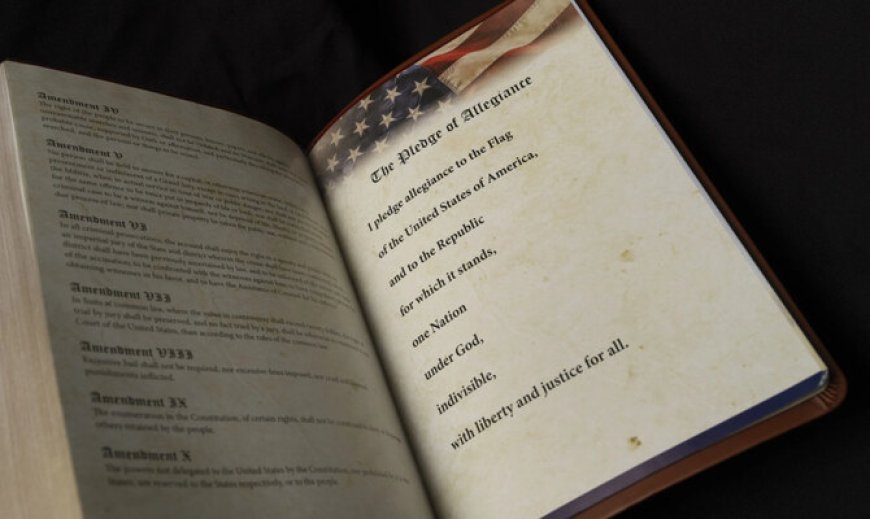Trump's "God Bless the USA" Bible: A Hypocritical Collaboration with China?

Long renowned for his harsh criticism of China's economic policies, Donald Trump has unexpectedly found himself in hot debate over the source of his "God Bless the USA" Bible. Thousands of these Bibles were produced in China despite his continuous criticisms of Beijing's economic policies, which drew attention to the actual interests of the former president.
Global trade statistics examined by the Associated Press show that earlier this year a Chinese company based in Hangzhou transported around 120,000 Trump's Bibles to the United States. Although the official website shows a steep $59.99, perhaps garnering up to $7 million in income, the shipments, valued at about $342,000, suggest that each Bible was manufactured for less than $3.
Given Trump's constant attack of China over his political career, this disclosure is especially amusing. He placed broad taxes on Chinese imports as president, claiming Beijing was pilfering American employment and profite from unfair trade practices. More lately, Trump has asserted that China poses an existential threat to the United States, implying—without data—that Chinese immigrants are assembling a "army" to invade America.
On the campaign road, Trump rails against China, but his financial interests tell a different tale. Among several Trump-branded for-profit projects, like digital trading cards and luxury watches, the Bible enterprise is one of many that begs doubts over the former president's intentions. Critics contend that his choice to produce Bibles in China highlights a gulf between his political statements and his personal business ethics.
Designed in cooperation with country artist Lee Greenwood, the "God Bless the USA" Bible combines theological ideas with patriotic symbols. Along with Scripture the Bible include the U.S. Constitution, the Declaration of Independence, and the Pledge of Allegiance. As part of his more general "Make America Great Again" agenda, Trump has praised the book as emblem of America's need to "bring back" religion.
Trump has not, however, been transparent about the specifics of the Bible's manufacture. He has not revealed his earnings per sale or the book publishing expenses. Though it is unknown whether Trump has gotten further payments, publicly available data indicate that CIC Ventures, a firm he owns, made $300,000 in royalties from Bible sales alone.
China's manufacturing of these Bibles adds still another level of complexity to Trump's already divisive image. Concerned about the blending of Christian and American symbols in the "God Bless the USA" Bible, religious experts and others have expressed worries about this instrument for advancing Christian nationalism—a movement aiming to match American identity with Christianity in public life. Some have even called it "blasphemous" and decried the "toxic" combination of religion and state that results from Scripture mixed with American historical records.
Further fueling the debate was Tim Wildsmith, a Baptist preacher and Bible reviewer, who called the book's quality shockingly inadequate. He pointed out that the fake leather cover, sticky pages, and lack of fundamental printing information suggested a crudely produced product, implying that the venture puts profit over religious or national feeling.
Trump's campaign, however, has stayed quiet on the subject, refusing to respond to inquiries concerning the beginnings of the Bible or possible conflict of interests. However, it is becoming more and more evident as more specifics come to light that Trump's commercial activities—including those involving religious products—may run counter to the austere economic policies he supported as president.
This problem also draws attention to a larger tendency in Trump's commercial endeavors, which frequently blurs the boundaries between politics, religion, and personal profit. For those who doubt the morality of such endeavors, Trump's financial interests seem to coincide with his political efforts whether they be for luxury goods, digital relics, or Bibles.
The irony of selling Bibles printed in China is unlikely to go unseen as Trump keeps running for the 2024 Republican presidential nominee. Although he talks about bringing employment back to America and severing relations with China, his commercial activities reveal a different picture that begs basic issues regarding the real interests of the former president.













































